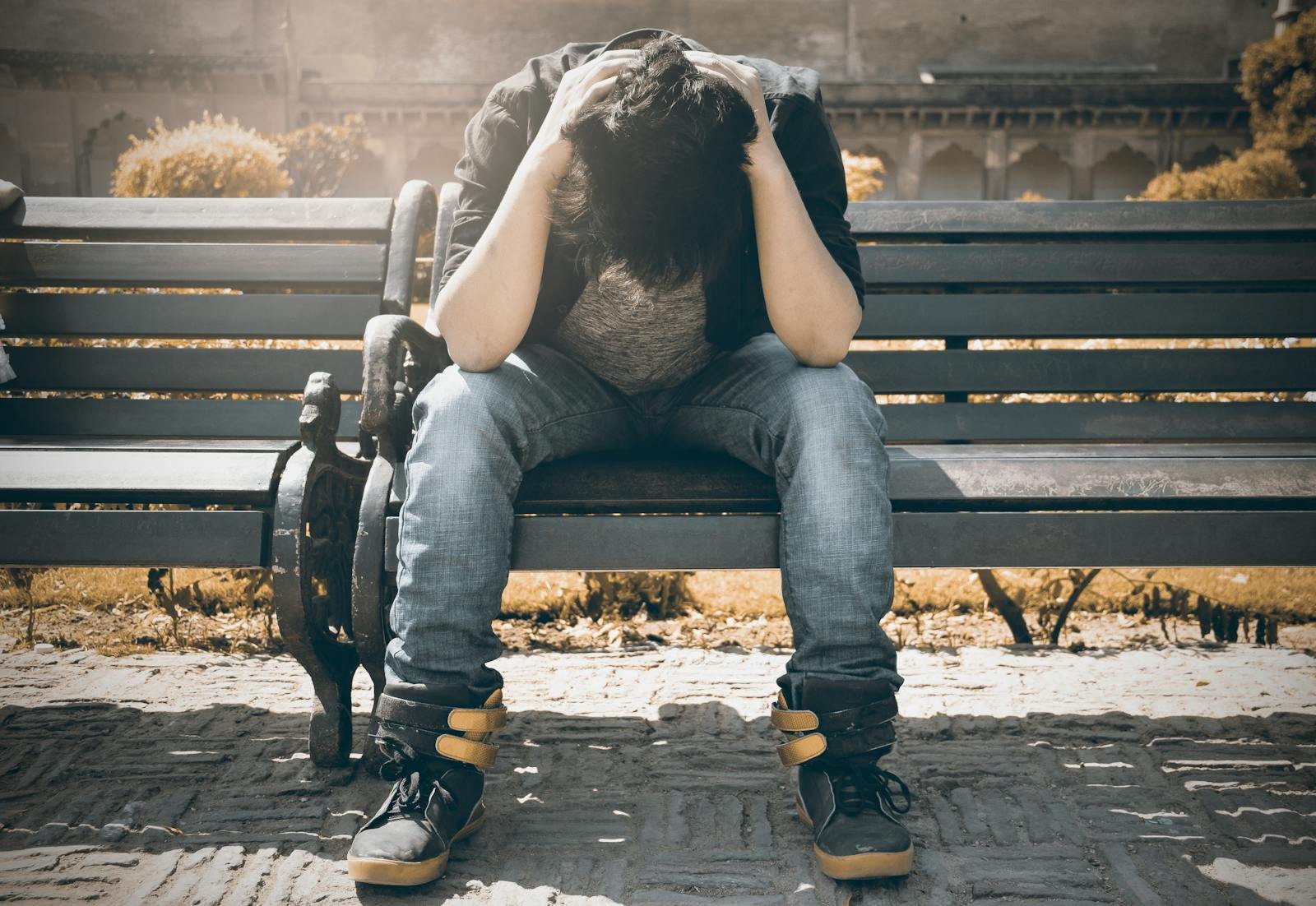Back pain and gas are common complaints, but many people don’t realize they can be connected. When gas accumulates in the digestive system, it can sometimes lead to discomfort that radiates to the back. This is particularly common in the lower back, though it can also affect the upper back. In this article, we’ll explore the causes, symptoms, and potential relief methods for back pain and gas, especially for those experiencing severe discomfort or recurring symptoms.
Causes of Back Pain and Gas
1. Digestive Issues
Gas is often caused by digestive issues like indigestion or trapped gas. When gas builds up in the stomach or intestines, it can create pressure and bloating that sometimes radiates to the back. Conditions such as irritable bowel syndrome (IBS), constipation, and gastroesophageal reflux disease (GERD) are common causes of this type of pain.
2. Poor Diet and Eating Habits
Eating certain foods, such as those high in fiber or fat, can lead to excessive gas and bloating. When combined with poor eating habits, such as eating too fast or not chewing food properly, these can contribute to gas-related back pain. Avoiding gas-causing foods like beans, cabbage, and carbonated drinks can help manage symptoms.
3. Gas Pain and Menstruation
For women, gas and lower back pain are often experienced together before or during menstruation due to hormonal changes. This can cause the intestines to slow down, leading to constipation, bloating, and increased gas production. The added pressure can contribute to both lower back pain and gas discomfort.
4. Muscle Strain Due to Bloating
When the abdomen is bloated from gas, the surrounding muscles, including those in the back, can become strained. This muscle tension can lead to back pain, especially if you are already prone to low back pain and gas.
Symptoms of Back Pain and Gas
| Symptom | Description |
|---|---|
| Lower Back Pain and Gas | Often felt as a dull ache in the lower back, especially after meals or during periods of constipation. |
| Upper Back Pain and Gas | Less common, but can occur if the gas buildup is severe and presses against nerves or muscles in the area. |
| Severe Back Pain and Gas | Intense pain that may make it difficult to move or sit comfortably; often accompanies bloating and cramps. |
| Lower Right Back Pain and Gas | Frequently seen with appendicitis or gallbladder issues, especially if accompanied by sharp abdominal pain. |
| Left Side Back Pain and Gas | May occur due to issues with the descending colon, especially in cases of constipation. |
| Middle Back Pain and Gas | Can be a sign of gas buildup in the intestines, often causing discomfort that moves between the abdomen and back. |
Common Locations of Back Pain Due to Gas
Lower Back Pain and Gas
Lower back pain and gas are commonly linked, as gas can create pressure in the intestines and affect the surrounding muscles. Individuals may feel a dull ache or even sharp pain, particularly on the lower left or right side.
Upper Back Pain and Gas
Though less frequent, upper back pain can also be associated with gas. This may occur when bloating causes stress in the upper abdominal area, potentially impacting nearby muscles and nerves.
Mid Back Pain and Gas
Mid-back pain linked with gas is typically due to pressure from trapped gas in the upper part of the digestive tract. When this gas is not expelled, it can create discomfort that may radiate to the mid-back.
Relief for Back Pain and Gas

1. Physical Activity
Gentle exercise, such as walking or stretching, can help reduce gas buildup and alleviate back pain. Movement helps the digestive system process gas more efficiently, easing bloating and preventing the pain from radiating to the back.
2. Dietary Adjustments
Avoid foods known to cause gas, such as beans, onions, and dairy products if you’re lactose intolerant. Opting for a low-FODMAP diet, which excludes certain fermentable carbohydrates, may also help reduce symptoms of gas and back pain, especially for those with IBS.
3. Over-the-Counter Medications
Medications such as simethicone can help break up gas bubbles, making them easier to pass. Antacids may also alleviate symptoms if acid reflux is contributing to the back pain. However, consult with a healthcare provider before using any medication.
4. Mindful Eating Habits
Eating slowly and chewing food thoroughly helps prevent swallowing air, which is a common cause of gas. Avoiding carbonated drinks and chewing gum may also reduce the risk of back pain and gas after eating.
5. Heat Therapy
Applying a warm compress or heating pad to the lower back can help relieve muscle tension caused by gas-related bloating. This method is especially useful for severe back pain and gas that affects movement.
For more on effective gas relief methods, visit Mayo Clinic’s guide on gas pain relief.
Back Pain and Gas in Specific Situations
Lower Back Pain and Gas in Females
In females, lower back pain and gas are commonly related to menstrual cycles. Hormonal changes during menstruation can slow down the digestive process, leading to constipation and gas buildup, both of which can contribute to lower back pain.
Back Pain and Gas During Pregnancy
Pregnancy often leads to increased levels of gas due to hormonal shifts and the pressure of the growing uterus on the digestive system. This can cause discomfort in the back, particularly the lower back, as gas buildup exerts additional pressure.
Lower Back Pain and Gas with Deep Breathing
Sometimes, back pain associated with gas can become more pronounced when taking deep breaths. This can occur if bloating causes tension in the back muscles, making it difficult to breathe deeply without feeling discomfort.
Also Read: How to Get Rid of Back Pain: Effective Strategies for Relief
Treatment Options for Back Pain and Gas
| Treatment Option | Description |
|---|---|
| Dietary Changes | Avoiding gas-causing foods can prevent symptoms. Consider a diet rich in fiber but low in fermentable carbs. |
| Regular Exercise | Promotes digestion and prevents gas buildup. Simple activities like walking or yoga can be beneficial. |
| Over-the-Counter Medication | Simethicone and other medications can ease gas pain; consult with a healthcare provider before starting any medication. |
| Hydration | Drinking enough water aids digestion and prevents constipation, reducing the risk of gas buildup. |
| Heating Pad | Applying heat to the back can relieve muscle tension caused by bloating. |
For more information on treating digestive-related back pain, refer to Cleveland Clinic’s guidelines.
When to Seek Medical Help for Back Pain and Gas
While back pain and gas are often harmless, certain symptoms may indicate a more serious condition. If you experience persistent or severe back pain along with symptoms like blood in your stool, fever, unexplained weight loss, or vomiting, it’s essential to seek medical advice.
In cases of intense pain, particularly lower right back pain and gas or upper right back pain and gas, a healthcare professional can assess the potential causes, including gallbladder issues or appendicitis.
Understanding Gas and Its Impact on the Body
Gas is a natural byproduct of digestion and usually doesn’t cause significant issues. However, when gas becomes trapped in the intestines, it can lead to uncomfortable pressure that impacts various parts of the body, including the back. Let’s explore more about the types of pain associated with gas and back pain.
The Difference Between Normal Gas Pain and Severe Symptoms
Most people experience some form of gas discomfort daily. Typically, gas pain is temporary, mild, and resolves on its own. However, if back pain and gas occur together frequently or are severe, it may be a sign of underlying health conditions that require attention.
In cases of severe back pain and gas, pay attention to additional symptoms such as:
- Unexplained bloating that doesn’t go away
- Significant weight loss
- Persistent changes in bowel habits
- Pain that doesn’t improve with rest or gas-relieving treatments
Persistent pain and digestive symptoms may be linked to chronic conditions such as irritable bowel syndrome (IBS), food intolerances, or even gastrointestinal inflammation. Consulting a healthcare provider can help in determining the cause and obtaining appropriate treatment.

Addressing Common Questions on Back Pain and Gas
Can Gas Cause Pain in the Upper Back?
While upper back pain due to gas is less common than lower back pain, it can occur, especially if gas is trapped in the upper digestive tract. When this happens, the pain can radiate to the shoulder blades or even between them. In my experience with patients, complaints of upper back pain and gas often arise after consuming large meals, particularly if they include carbonated beverages, high-fat foods, or large amounts of dairy.
For relief, avoid foods that commonly cause gas. Exercises focusing on opening the chest, like gentle twists or stretches, can also relieve pressure.
Why Does Gas Cause Back Pain in Some People?
Gas pain that radiates to the back is often due to pressure exerted by the bloating. This pressure can cause muscle tension and affect nerves in the back. In certain cases, particularly with lower back pain and gas, the pain may occur due to the proximity of the digestive tract to the lower back muscles.
For many of my patients who experience low back pain and gas, incorporating gentle exercises, hydration, and a balanced diet has proven helpful.
Preventive Measures for Back Pain and Gas
1. Improve Eating Habits
Eating quickly, not chewing food thoroughly, and talking while eating can introduce more air into the stomach, leading to gas buildup. Encourage yourself to eat mindfully:
- Take smaller bites
- Chew thoroughly before swallowing
- Avoid drinking through straws or talking excessively while eating
These small changes can reduce swallowed air, ultimately decreasing gas that may lead to back pain.
2. Stay Hydrated
Proper hydration aids digestion, allowing food to move smoothly through the intestines. This helps prevent constipation, which can reduce gas buildup. I often advise patients to aim for at least 8 glasses of water daily, though this can vary based on individual needs and activity levels.
3. Limit Carbonated Drinks and Artificial Sweeteners
Carbonated drinks introduce additional gas into the stomach. Additionally, artificial sweeteners such as sorbitol and xylitol, commonly found in sugar-free gum and snacks, are notorious for causing gas in many people.
4. Try Probiotics
Probiotics contain beneficial bacteria that support digestive health and may help reduce gas. Studies suggest that probiotics can improve symptoms of bloating and abdominal pain, which are often related to gas. Look for probiotic-rich foods such as yogurt, kefir, and fermented foods, or consider a supplement with the advice of a healthcare provider.
5. Practice Physical Activity Regularly
Exercise helps maintain a healthy digestive system by promoting intestinal movement and reducing gas buildup. Activities such as walking, yoga, and stretching can relieve tension in the back muscles that may accompany gas. I often recommend patients to include at least 30 minutes of light physical activity daily.
Home Remedies for Back Pain and Gas Relief
Herbal Teas for Digestion
Herbal teas, like peppermint or ginger tea, have been traditionally used to reduce gas and ease digestive discomfort. These teas can relax the digestive tract, helping gas pass more easily and relieving the pressure that can lead to back pain.
Ginger Tea Recipe:
- Boil a cup of water and add a few slices of fresh ginger.
- Let it steep for 10 minutes.
- Drink slowly after meals to help with digestion.
Massage Techniques
Gently massaging the abdomen in circular motions can encourage gas to move through the intestines. For lower back pain and gas symptoms, use a warm compress on the lower abdomen or lower back area to relieve any muscle tension that might be contributing to the pain.
Potential Links Between Gas-Related Back Pain and Other Conditions
Some conditions may cause both back pain and gas, necessitating a closer look to determine if a more specific issue is contributing to the discomfort.
Irritable Bowel Syndrome (IBS)
IBS is a common condition that causes gas, bloating, abdominal pain, and changes in bowel habits. Many patients with IBS report back pain and gas symptoms, particularly when their digestive symptoms are at their peak.
For effective management, a combination of a low-FODMAP diet, stress management, and regular physical activity is recommended. Seeking advice from a healthcare provider is essential for personalized IBS treatment options.
Lactose Intolerance
Lactose intolerance is an inability to digest lactose, the sugar found in milk and dairy products. Consuming dairy when lactose intolerant can lead to bloating, gas, and discomfort that may radiate to the back. If lower back pain and gas frequently follow dairy consumption, consider avoiding dairy or using lactase supplements to aid digestion.
Gallstones
Gallstones are hardened deposits of digestive fluid that can block the bile duct, leading to severe abdominal pain that can radiate to the back. Patients with gallstones may experience upper right back pain and gas accompanied by nausea, especially after consuming high-fat meals.
Pancreatitis
Pancreatitis is inflammation of the pancreas, often causing upper abdominal pain that radiates to the back. This condition can lead to upper left back pain and gas symptoms and typically requires medical treatment.
When to Seek Medical Attention
Most cases of back pain and gas are manageable with home remedies and lifestyle changes. However, seek medical attention if:
- The pain is severe or persistent
- You experience significant weight loss or loss of appetite
- You have blood in the stool or severe constipation
- Symptoms are accompanied by fever or vomiting
Persistent back pain and gas could indicate a more serious gastrointestinal condition, such as gallbladder disease or pancreatitis. Consulting a healthcare provider can help identify the underlying cause and develop an appropriate treatment plan.
For further reading on digestive health and back pain management, refer to Harvard Health’s Digestive Disorders Guide.
Conclusion
Back pain and gas are common complaints that often arise from dietary choices, digestive issues, or temporary discomforts. By adjusting lifestyle habits, incorporating gentle physical activity, and using home remedies such as herbal teas and mindful eating, most people can manage their symptoms effectively. However, for those experiencing persistent or severe discomfort, it’s essential to seek medical guidance to rule out any serious underlying conditions.




